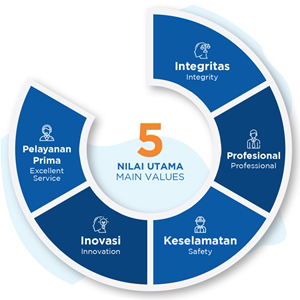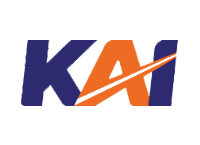KAI - Development Projects
KAI initially only conducted business on the railway services, but along with the dynamics of the business world and the growing demands of the market, KAI is currently also carrying out other supporting business activities by utilizing its resources. That includes, property management services related to train rail, railway-based tourism, on train services and at the station, including catering services and logistics distribution.
At this moment, KAI operational coverage includes the island of Jawa and Sumatra. The working area on the island of Jawa is divided by the Operational Area (Daop), while the working area in Sumatra is divided by the Regional Division (Divre), which consists of: 9 Operational Areas (Daop) and 4 Regional Divisions (Divre). KAI is currently operating 583 stations and 4,675 km of rail network throughout Jawa and Sumatera for 1117 train trips daily. Also, KAI has a total of 320 million square meter of land, 16,424 company-owned houses and 3,672 company-owned buildings scattered in Jawa and Sumatera which has potential to be commercialised for non-transportation businesses.
In conducting its business, KAI continues to apply the best standards in its field based on applicable management system and organisation model. KAI has employed international standard of management systems to run the business namely ISO 9001:2008, ISO 31000:2009 and ISO 27001:2013. Also, KAI continues to improve and co-evolve with the development of the business. Advancement of Information Technology (IT) is one of the latest positive aspects absorbed by KAI. Development in information technology pushes KAI to implement business strategies by placing IT as a key element in the innovation process conducted by the Company. In 2015, to further improve customer service in terms of the ease of getting train tickets, a new ticket purchasing service facility in the form of Train tickets vending machine purchase (electronic kiosk/e-kiosk) was launched. It will enable passengers to buy ticket without having to queue at the counter as to improve the efficiency and cost-effectiveness as well as create new business value for the Company. Besides, KAI has used some of the technology services from SAP to support the Company’s performance e.g. SAP Fico to improve the administration and financial reporting, SAP MM/PM to make efficient use of inventory and maintenance and SAP payroll for workers payroll. Accurate information system is expected to improve operational efficiency, simplify and accelerate the monitoring of risk management activities.
In terms of organization model, KAI had made several rapid changes during transformation period, ever since 2009, to address the market demands and to adhere to Good Corporate Governance requirements.
Vision
To become the best railway service providers focusing on customer service and fulfilling stakeholders expectation.
Mission
Operating railway and supporting businesses through best business practices and organizational model to provide high added-value for the stakeholders and environment conservation based on four main pillars: Safety, Punctuality, Service, and Convenience.
Corporate Culture

INTEGRITY: Act consistently in accordance with the values of organizational policies and code of conduct of the Company. Have the understanding and desire to adjust to such policies and ethics and act consistently even though it is difficult to do so.
PROFESSIONAL: Have the ability and mastery in the field of knowledge related to work, able to master how to use, develop, and share knowledge related to work to others
SAFETY: Has an uncompromising nature and consistent in carrying out or creating systems or work processes that have the potential for low risk of accidents and safeguarding the company’s assets from possible losses.
INNOVATION: Always develop new ideas, carry out continuous corrective actions, and create a conducive environment for creation so as to provide added value to stakeholders.
EXCELLENT SERVICE: Provide the best service in accordance with satisfying quality standards and meet expectations or exceed customer expectations by fulfilling 6 A main elements: Ability, Attitude, Appearance, Attention, Action, and Accountability.

